Stations
Deploy test stations with controlled access and monitoring.
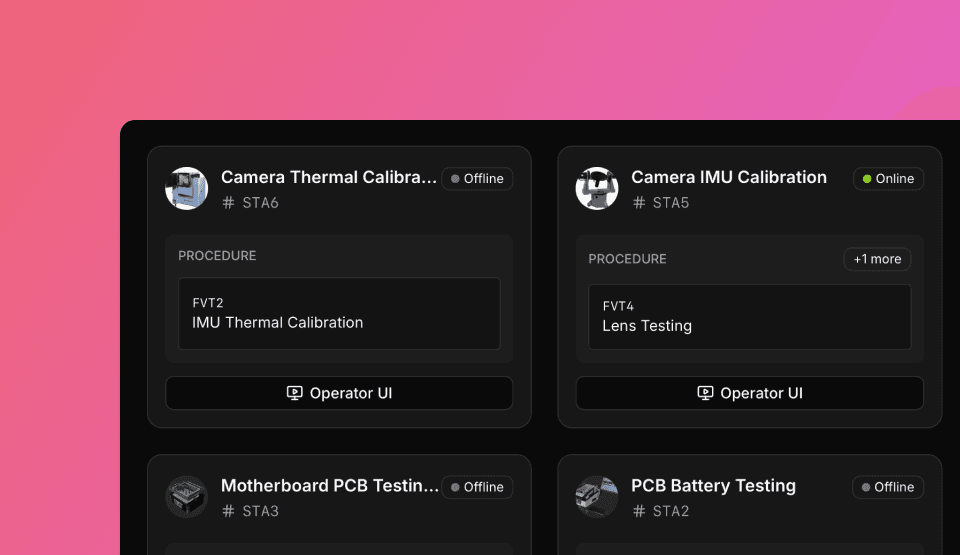
Overview
A Station represents a physical test bench that executes procedures. Each station has its own API key and links to specific procedures for controlled access across production sites.
Create Stations
Create a station in the Stations tab. Enter a name and generate an API key.
Link procedures to the station using Link Procedure.
Use the generated station API key in your TofuPilot client by passing it as the api_key argument in your script or by storing it in your environment variables.
with TofuPilot(test, api_key="YOUR_STATION_API_KEY"):
test.execute(lambda: "SN001")client = TofuPilotClient(api_key="YOUR_STATION_API_KEY")Link relevant procedures to the station.
In your script, ensure you use the procedure_id linked to your station when pushing test runs to TofuPilot.
test = htf.Test(procedure_id="FVT1")client.create_run(procedure_id="FVT1")Required Parameters
All stations require these fields:
| Prop | Type | Default |
|---|---|---|
procedure_id? | str | – |
api_key? | str | – |
# Before running the script, ensure you have created a station in the TofuPilot interface
# and linked it to the specified procedure ID ("FVT1" in this example).
# You also need to save your API key in an environment variable named "STATION_API_KEY"
# or pass it directly as an argument like this:
# TofuPilot(test, api_key="STATION_API_KEY")
import openhtf as htf
from tofupilot.openhtf import TofuPilot
def phase_one(test):
return htf.PhaseResult.CONTINUE
def main():
test = htf.Test(
phase_one,
procedure_id="FVT1", # Create a station in TofuPilot linked to this procedure ID
part_number="PCBA01",
)
# The API key can be set in environment variables or passed directly.
with TofuPilot(test):
test.execute(lambda: "SN-0001")
if __name__ == "__main__":
main()# Before running the script, ensure you have created a station in the TofuPilot interface
# and linked it to the specified procedure ID ("FVT1" in this example).
# You also need to save your API key in an environment variable named "STATION_API_KEY"
# or pass it directly as an argument like this:
# TofuPilotClient(api_key="STATION_API_KEY")
from datetime import datetime, timedelta
from tofupilot import PhaseOutcome, TofuPilotClient
def phase_one():
start_time_millis = datetime.now().timestamp() * 1000
phase = {
"name": "phase_one",
"outcome": PhaseOutcome.PASS,
"start_time_millis": start_time_millis,
"end_time_millis": start_time_millis + 30 * 1000, # 30 seconds
}
return phase
def main():
# The API key can be set in environment variables or passed directly.
client = TofuPilotClient()
client.create_run(
procedure_id="FVT1", # Create a station in TofuPilot linked to this procedure ID
run_passed=all(
phase["outcome"] == PhaseOutcome.PASS for phase in phases),
unit_under_test={
"serial_number": "SN-0001",
"part_number": "PCBA01"
},
phases=[phase_one()],
duration=timedelta(minutes=1, seconds=45),
)
if __name__ == "__main__":
main()API Key
Each station gets a unique API key with limited permissions compared to user API keys. Regenerate or delete keys if compromised or when stations are decommissioned.
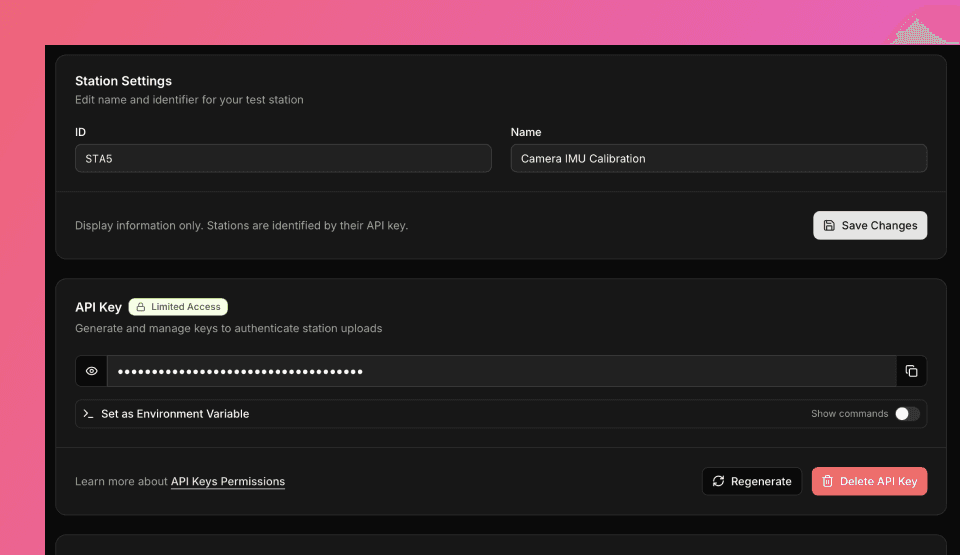
Link Procedures
Stations can link to one or multiple procedures. Use Link Procedure to modify these connections.
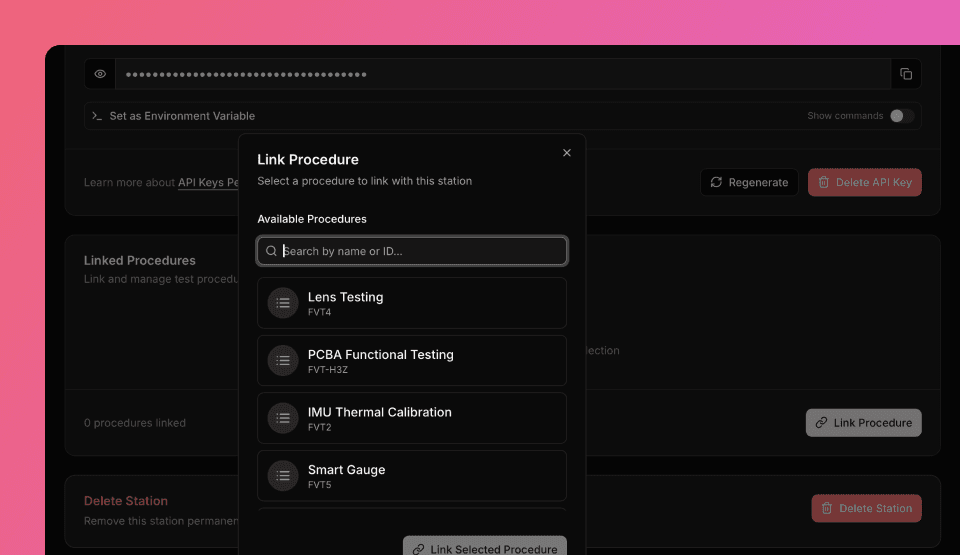
Access Operator UI
Access each station's Operator UI from the Stations tab. Available for OpenHTF stations only.
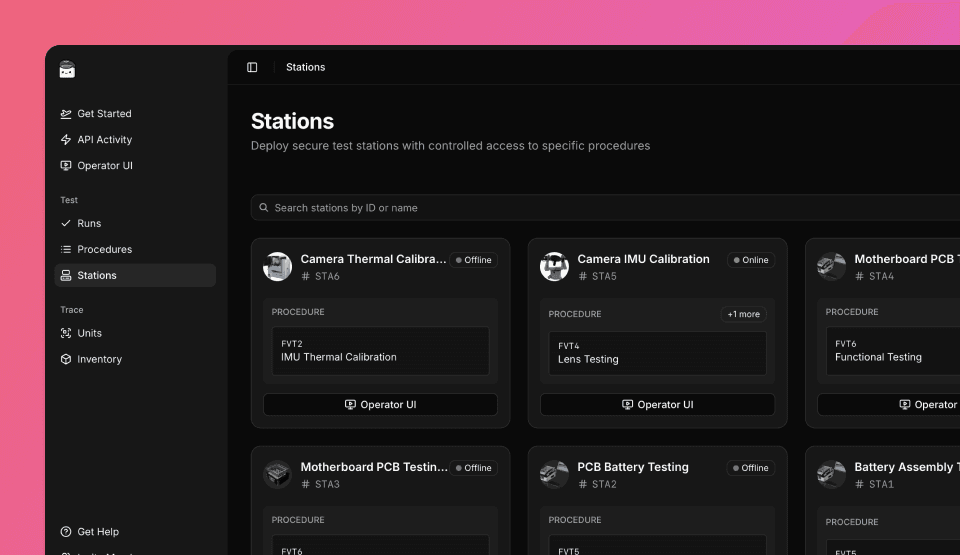
Monitor Uptime
Track station connectivity and uptime. Real-time status and 90-day uptime history available for OpenHTF stations.
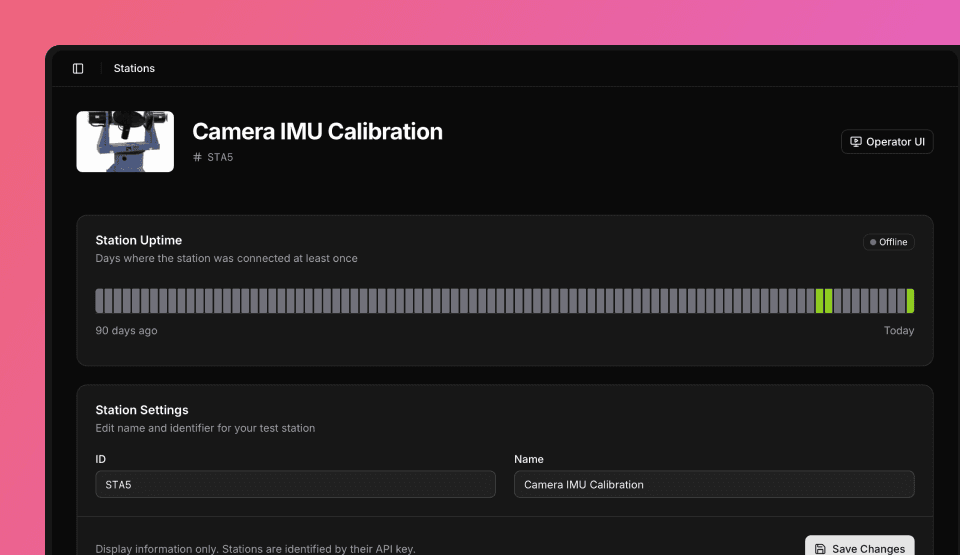
How is this guide?